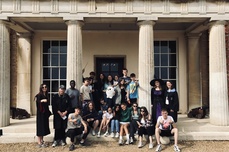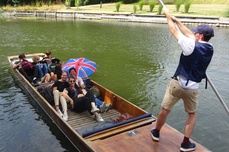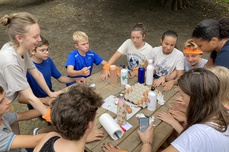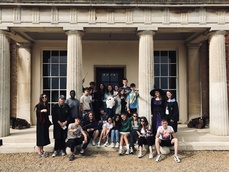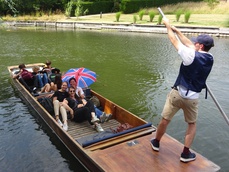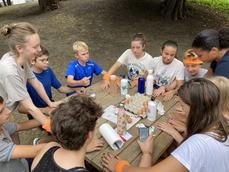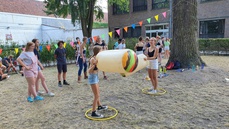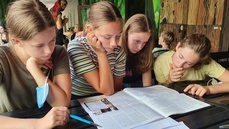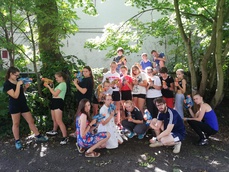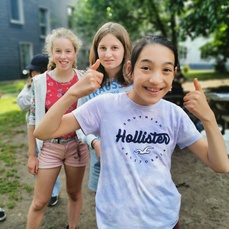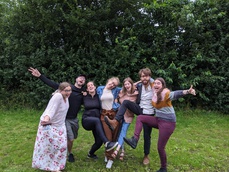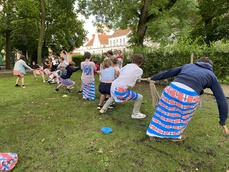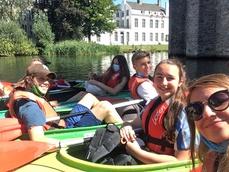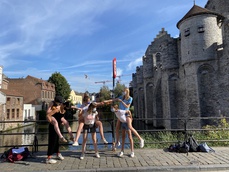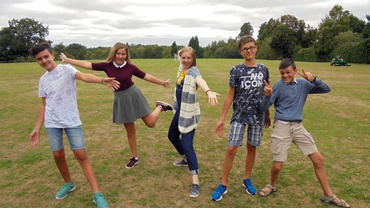
“Some of the Activity Leaders are native speakers”, says Annelies Tanghe (23), a volunteer on the English and Dutch for non-native newcomers (NT2) camp. “Because their mother tongue is different to that of the participants, the children and young people really get a good grasp of the language. This helps to make the language they are learning more accessible to them.”
“’Active presence’ is a recurring theme at camp. The volunteers are constantly with the participants – during lunch, activities, free time, etc. They practice the target language with them in all kinds of daily situations”, says Annelies.
Signing and Pictures
“It can be quite tiring for the children and young people to speak another language all the time, especially if they don’t speak it very well yet. But I think that our approach and activities ensure that they have a great time at camp. We have many participants who return year after year, which I think says a lot !”
“I give lessons to participants who have very little knowledge of the language. I use signs or pictures to explain each word I say and I talk very slowly so that I can be sure that they understand what I am saying.”
Connections with Their Environment
“At the same time, I always make sure that the language lessons don’t feel too much like school. As long as they are speaking the target language, that’s really all that matters. That’s why it’s important to make it relevant to their environment, the things they are into, the songs they listen to etc. That way, they have plenty of input into the course their learning takes. At one point, my group of participants were showing each other their houses on Google Maps. It wasn’t what I had planned for the lesson at all, but I went along with it enthusiastically anyway.”
Proud of my Group
“I really love the theme-days. For example, I might spend the entire day with my group working on a play which we perform to the rest of camp in the evening. Whenever I see my group standing up and performing in public, I feel incredibly proud of them. They just go for it – and they do it in the target language. And the reactions they get are also really heart-warming.”




